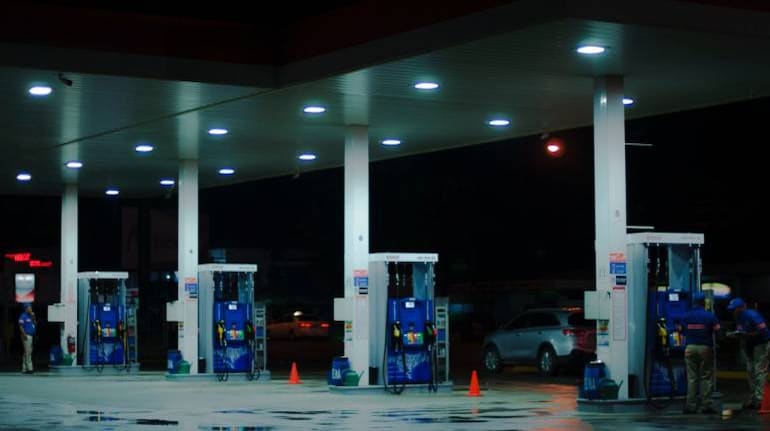



With petrol prices breaching the three-digit mark in many parts of the country, the Kerala High Court has asked the Goods and Services Tax (GST) Council to consider a representation that seeks to bring petrol and diesel under the GST regime, and take an appropriate decision in six weeks.
Experts are divided over the court’s move, with some welcoming the move and others saying the bring fuels under GST have huge implications for tax revenue collected by the centre and states.
Petrol and diesel are the major revenue spinners for the Union government in the form of excise duty and cess and for states in the form of value added tax (VAT). "Considering the rising fuel prices in the country and keeping the objective of “One Nation, One Tax, One Market” in mind, this is a welcome decision of the Kerala High Court directing the Centre to deal with this matter in a time bound manner," said Prateek Bansal, Associate Partner, White and Brief Advocates and Solicitors.
He said that since the supply of petrol and diesel is currently not liable to GST, the taxes (Excise duty and VAT) paid thereon cannot be offset against the outward GST liability of the businesses, and thus become an additional tax cost in the supply chain of goods, which ultimately leads to inflation and is borne by the common man.
Data from the government’s Petroleum Planning and Analysis Cell (PPAC) shows that contribution to the state exchequer in the form of sales tax and value-added tax of petroleum, oil, and lubricants has increased by 46 per cent from Rs 137,157 crore in 2014-15 to Rs 200,493 crore in 2019-20. For the first nine months of 2020-21, it was seen at Rs 135,693 crore. The states that have seen the maximum revenue out of this in the first nine months of 2020-21 include Maharashtra (Rs 16,962 crore), Uttar Pradesh (Rs 14,643 crore), Tamil Nadu (Rs 11,826 crore) and Rajasthan (Rs 11,071 crore).
“Inclusion of petroleum and petroleum products within the purview of GST is a policy decision and must be taken unanimously by the GST Council comprising both the central government and all state governments. The inclusion will impact revenue collection and distribution of revenue and therefore must be taken very pragmatically”, said Abhishek A Rastogi, Partner at Khaitan & Co.
Over the past five years, the central government’s excise duty collection from petrol rose 167 percent from Rs 29,279 crore in 2014-15 to Rs 78,230 crore in 2019-20. This has further increased to Rs 89,575 crore in April-January 2020-21, owing to the rise in taxes last year. A similar hike was seen in diesel, with excise collection almost tripling to Rs 1,23,166 crore in 2019-20 from Rs 42,881 crore in 2014-15. For the April to January period of 2020-21, this has further increased to Rs 2,04,906 crore.
"The Constitution requires the GST Council to recommend the date on which petroleum products such as diesel, petrol, aviation turbine fuel, etc would be brought under the GST net. Under the present tax system, the excise duty and VAT collected on petrol and diesel works out to more than 125 percent of the price charged to the dealers. The overall share of petroleum products in the total tax collection is significantly higher than tax from other sectors," said Ajinkya Gunjan Mishra, Partner at L&L Partners.
He added that since a significant percentage of the Centre and state revenue comes from taxes on petroleum products, the government is unlikely to push for their inclusion any time soon. "To enable both the centre and the states to maintain the current level of tax collection from petroleum products, any inclusion of petroleum products in the future may likely result in the adoption of a GST rate that is way higher than the existing highest GST slab rate of 28 per cent," he said. In a Public Interest Litigation, Kerala Pradesh Gandhi Darshanvedhi had urged the court to order the GST Council to recommend the inclusion of petrol and diesel under the GST regime.
ICRA has projected a year-on-year (YoY) growth in the consumption of petrol and diesel in FY2022 at 14 percent and 10 percent, respectively, on the low base of FY2021. "Benefitting from the revival in consumption of fuels, the aggregate revenue generated from the cesses imposed by the Government of India (GoI) on petrol and diesel is estimated by ICRA to expand by 13 percent or Rs 0.4 trillion to Rs 3.6 trillion in FY2022. If this additional revenue of Rs 0.4 trillion is foregone, it can support a reduction in cesses by Rs. 4.5/litre each on MS and HSD," the rating agency said.
Discover the latest Business News, Sensex, and Nifty updates. Obtain Personal Finance insights, tax queries, and expert opinions on Moneycontrol or download the Moneycontrol App to stay updated!
Find the best of Al News in one place, specially curated for you every weekend.
Stay on top of the latest tech trends and biggest startup news.